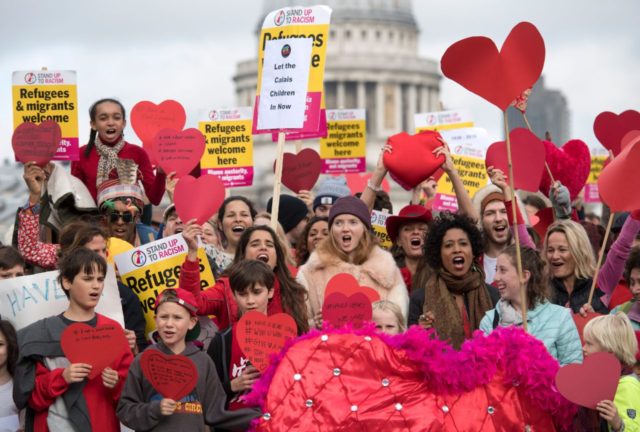Syrian refugees who were resettled in Britain last year are dissatisfied with the NHS, and unhappy about being placed outside of cities, according to a UN report.
More than 8,500 Syrians have been brought to Britain under a programme launched in 2015, when the Middle Eastern nation was being ravaged by civil war, which will see 20,000 brought over in total by 2020.
While the study reported that the scheme is working “relatively well”, it found that some refugees arrived with “unrealistic expectations” of treatments available, and that “many are overwhelmed” by the NHS and its “complex referral rules and waiting lists”.
Stressing the need for “accurate, timely and ongoing information throughout the resettlement process”, the report said refugees interviewed had “unrealistically high expectations before departure relating to the speed of healthcare provision, accommodation size and location, and general living conditions in the UK”.
Despite the Home Office taking steps to ensure that migrants being housed in rural areas are appropriately placed, such as only resettling in remote areas families who had previously lived in rural parts of Syria, the UN reported dissatisfaction among refugees living outside of cities.
According to the report, some migrants wanted to move to “places where they believed there were better employment and education prospects”, while others who were interviewed “desired living closer to members of their own community”.
“Some refugee youths, primarily men but also some women, aged 17-24, including those arriving as part of family groups, found the transition particularly testing and faced relatively greater challenges to successful integration,” the study noted.
Some councils and caseworkers said there was “concern” over low rates of attendance at English for Speakers of Other Languages (ESOL) classes in some groups, including men aged 18-24 who were not in full-time education, training, volunteering, or employment.
Syrians who were neither literate in Arabic nor English “and for whom learning based on letter and word recognition was a significant challenge” were also said to have low attendance rates, according to the report.
The United Nations High Commissioner for Refugees (UNHCR) representative in London, Gonzalo Vargas Llosa, took the opportunity of the report’s publication to repeat the UN’s previous demand that Britain take an extra 10,000 refugees a year directly from camps in the third world.
He said: “The UK clearly has the capacity to resettle meaningful numbers of refugees. Integration of refugees is complex. By and large it is working, and support for integration — from the public, local authorities and government — has been striking. We hope that, with development, this model can help more refugees from Syria and elsewhere resettle here after 2020.”
While the UN announced the end of Syria’s civil war in September, local media in Wales reported that the first Syrian refugees under a private sponsorship scheme are going to be arriving in a tiny Welsh village “within the next couple of weeks”.
According to migrant-importing ‘charity’ Croeso Teifi, “towns throughout Wales … [are] queuing up to receive families” under community sponsorship, a scheme introduced by Theresa May which allows private organisations to bring in migrants from the third world.

COMMENTS
Please let us know if you're having issues with commenting.